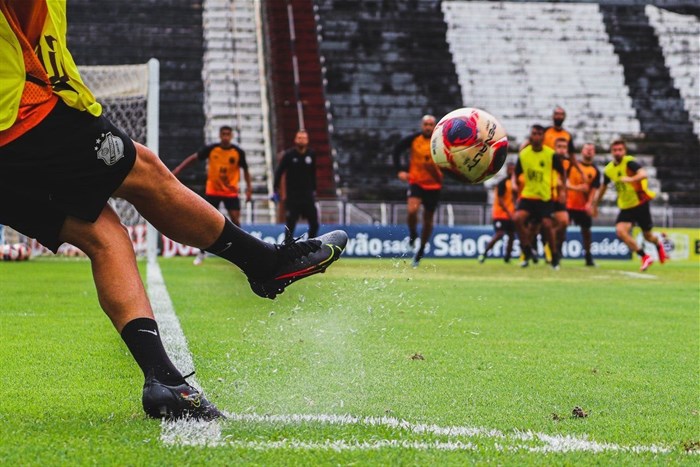Over the years, football clubs have adopted various strategies to recruit and retain talent. It has become common for football clubs to insert unilateral extension options (options) in player contracts to avoid losing players on a free transfer. At the same time, potential clubs seek to recruit players by concluding pre-contracts with them prior to the expiry of their existing contracts.
As a result, as could be seen in the potential dispute between Richards Bay and Marumo Gallants regarding the transfer of Ranga Chivaviro to Kaizer Chiefs, disputes may arise where a player signs a pre-contract with another club before the option trigger date in the player’s existing contract has lapsed.
Pre-contracts and options are not specifically regulated by the Fifa Regulations on the Status and Transfer of Players (Regulations). Consequently, clubs and players may misinterpret their legal effect, resulting in contraventions of football regulations.
Legal effect of pre-contracts in football
A contracted player may only conclude a contract with another club if the player’s existing contract is due to expire within six months. This contract is known as a ‘pre-contract’ in the football industry.
The panel of the Court of Arbitration for Sports (CAS) in CAS 2008/A/1589/ MKE Ankaragucu Spor Kulubu v. J, provided clarification on the binding nature of pre-contracts by finding that it is possible for a pre-contract to be binding and enforceable if it contains all the essential terms agreed to between parties.
Essential terms may include, inter alia, details of the football club and the player, the date of commencement and termination, remuneration and any additional benefits. Without the essential terms, a pre-contract may be seen as an ‘agreement to agree’ which has been held to be unenforceable by the Supreme Court of Appeal in Shepherd Real Estate Investments (Pty) Ltd v Roux Le Roux Motors CC.
Unilateral extension options
In the football industry, an option is a contractual clause that gives a football club the exclusive right to unilaterally extend the employment period of a player. The football club must exercise the option before a pre-determined date which is usually three months before the contract expires.
The concern with options in the football industry is that they are often disproportionally in favour of clubs while offering minimal, if any, additional benefits to players. This results in players not being fairly remunerated during the extension period.
Notwithstanding, the CAS panel in, CAS 2013/A/3260 Gremio Foot-ball Porto Alegrense v. Maxi Lopez found that there is no outright prohibition of options in the Regulations. Disputes regarding the validity of options are determined on a case-by-case basis.
Signing multiple contracts covering the same period
There have been scenarios where a player enters into a pre-contract with another club before their current club exercise an option. In such an instance, an anomalous situation would exist where a player finds themselves bound to two employment contracts in contravention of article 18.5 of the Regulations and Rule 41.15 of the National Soccer League Handbook (NSL Handbook).
Guidance in the Commentary on the Regulations (2021 edition) provides that the validity of a pre-contract is not per se impacted by the fact that it was concluded more than six months before the player’s current contract is due to expire. This view is supported by the decision of the CAS panel in CAS 2016/A/4495 Hakan Calhanoglu v. Trabzonspor FC & FIFA, and CAS 2016/A/4535 Trabzonspor FC v. Hakan Calhanoglu, where the panel found that a pre-contract signed more than a year before the player’s existing contract was due to expire was valid. It is therefore unlikely that the validity of a pre-contract will be impacted by the fact that it was concluded before the option trigger date in the player’s existing contract has lapsed.
Players who enter into more than one employment contract covering the same period will only be able to render services to one club because no player may be registered with more than one club at the same time. Such a player will inevitably be in breach of the terms of one or both their contracts.
In South Africa, rule 41.15.1 of the NSL Handbook provides that a matter involving a player who has entered into multiple contracts must be referred to the PSL Dispute Resolution Chamber (DRC).
Depending on the facts of the matter, the DRC may order a player who has entered into more than one employment contract to pay one of the clubs compensation, which may be payable by both the player and their new club. The DRC may also hand down sporting sanctions, such as, banning the player from playing official matches for four to six months and/or imposing a transfer ban for two consecutive registration periods against a club found to have induced the player to breach a contract.
Conclusion
It is important for football clubs and players to be cautious and seek legal advice when concluding pre-contracts and exercising options given the risks involved. Clubs who seek to enlist the services of a player within the six-month period before the expiry of the player’s current contract should first establish whether there is an option in the current contract. Failure to do so may result in protracted litigation which can cause damage to the reputation of the club and a player’s career.










































